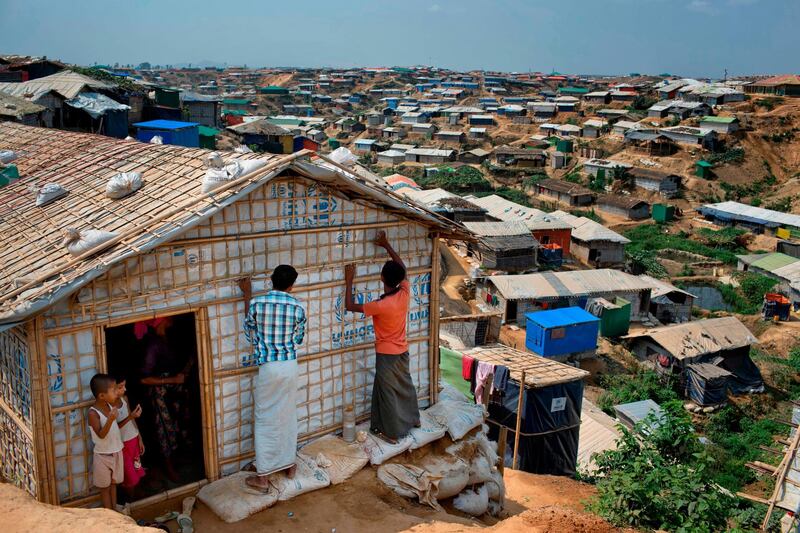UAE’s Minister of State for Foreign Affairs Anwar Gargash said that the Rohingya crisis requires an “effective” plan of action, as many feared that the refugees returning to Myanmar will be kept in settlements indefinitely.
“The Rohingya issue is an Islamic and humanitarian one,” Dr Gargash tweeted on Saturday. “The ethnic cleansing that afflicts this minority [group] presents a number of urgent challenges and requires an effective plan of action, which addresses their return, identity, and safety.”
ويبرز موضوع محنة الروهينغيا كقضية إسلامية وإنسانية بإمتياز، التطهير العرقي الذي يطال هذه الأقلية يطرح مجموعة من التحديات العاجلة، ولا بد من خطة عمل فاعلة تشمل عودتهم وهويتهم وأمنهم وتضمن حلّ مأساتهم.
— د. أنور قرقاش (@AnwarGargash) May 5, 2018
"The UAE's humanitarian efforts to ease the suffering of the Rohingya has included providing necessary treatment to more than 132,000 refugees, of which 78,000 are women and children living in the Cox's Bazar camps in Bangladesh. Our efforts continue."
جهود الامارات الانسانية للتخفيف من معاناة الروهينغيا شملت تقديم العلاج اللازم لأكثر من ١٣٢ ألف لاجئ بما في ذلك ٧٨ ألف إمرأة وطفل ممن يقيمون في مخيم كوكس بازار ببنغلادش، جهودنا مستمرة.
— د. أنور قرقاش (@AnwarGargash) May 5, 2018
Myanmar’s army chief has said that Rohingya refugees who return to the country will be safe as long as they stay in the model villages built for them.
Around 700,000 Rohingya Muslims fled Buddhist-majority Myanmar to Bangladesh after the military launched a brutal crackdown on insurgents in August that the US and the UN have called ethnic cleansing.
Myanmar and Bangladesh agreed to repatriate refugees to conflict-hit Rakhine state last year but Rohingya are loathe to come back to a country without guarantees of safety and basic rights such as freedom of movement.
"There is no need to be worried about their security if they stay in the areas designated for them," the country’s army chief, Aung Hlaing, told a visiting delegation from the UN Security Council in the capital Naypyidaw on April 30, according to a statement posted on Min Aung Hlaing's official Facebook page on Saturday.
_____________
Read more
UAE pledges Dh7.35m towards Rohingya refugee crisis
UN team visits Rohingya camp as refugees call for justice
_____________
He referred to members of the stateless minority as "Bengalis", reflecting a widespread belief in Myanmar that the Rohingya are immigrants from Bangladesh despite a long-standing presence in Rakhine.
The army chief also cast doubt on the allegations raised by refugees in Bangladesh, many of whom shared stories of extrajudicial killings, arson and rape.
"Bengalis will never say that they arrive there happily. They will get sympathy and rights only if they say that they face a lot of hardships and persecution," he reportedly said, adding that the issue was "exaggerated".
The UN has said conditions on the ground are not ripe for the refugees to return, despite Myanmar's insistence that it is ready even as no large-scale repatriation has occurred.
The government has built transit camps that can accommodate tens of thousands of people and a much smaller number of new houses to replace fire-blackened villages where Rohingya used to live.
The minority community has been persecuted in Myanmar for decades and Rohingya have lived in what rights groups have called apartheid-like conditions, with severe restrictions on movement and access to health services.
_____________
Read more
Rohingya Muslims face possible death as cyclone season approaches
Whistleblowing Myanmar policeman sentenced to jail
_____________






